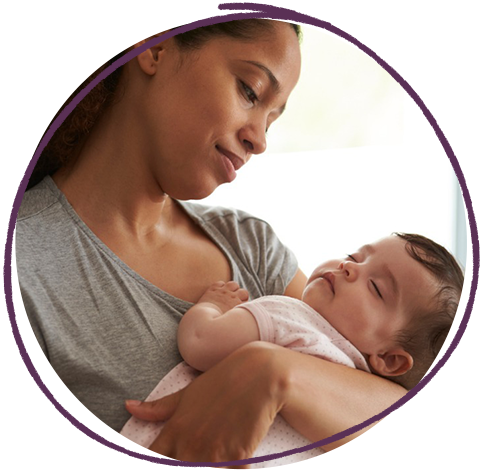Martina didn’t realize
how much she’d been living in fear…
until she arrived in shelter six months pregnant. Read about her journey to safety throughout our program.

Domestic violence is a pattern of destructive behaviors used to maintain power and control over an intimate partner. These can include physical, sexual, financial, spiritual, and emotional abuse and reproductive coercion, in addition to threats, intimidation, and actions that cause fear.
Intimate partner violence does not discriminate. People of every age, ethnicity, gender identity, religion, disability, income and education level are impacted, along with those who are married, living together, or dating.
Please be aware that your internet and phone use can be monitored. If there is any chance that your abuser has access to your computer or your phone, we recommend using a safer (public) phone or computer. If you are in immediate danger, please call 911.
is this abuse?
The following behaviors by a partner are signs that you may be in an unsafe relationship. But remember: you deserve to be safe, you deserve to be respected, and you are not alone. Help is available! Click here to learn more.
Domestic violence impacts people in our community regardless of their gender, age, ethnicity, disability, sexual orientation, or socio-economic status. Abusive partners in LGBTQIA+ relationships use the same tactics to gain power and control, but survivors may face more complex barriers in leaving the relationship.
You can learn more about unhealthy behaviors, forms of abuse, and red flags through the National Domestic Violence Hotline.
Raphael House is LGBTQIA+ inclusive. Find how to access our services here.
When someone you care about is being abused, it can hard to know how to help. Listening, offering non-judgmental support, and simply saying “I believe you” can have an immense impact.
Remember, there are many reasons why people stay in abusive relationships, and leaving can be a very dangerous time. Learn how you can support a loved one from the National Domestic Violence Hotline, or contact our 24-hour hotline at (503) 222-6222 to discuss and explore local resources.
There are also many resources specific to supporting youth in families experiencing domestic violence.
HELP FOR abusers
There is absolutely no excuse for abuse. For those interested in taking full accountability for their actions and making change, help is available. Call 211 or visit 211info.org to search for local resources. The National Domestic Violence Hotline also has resources available for abusive partners.